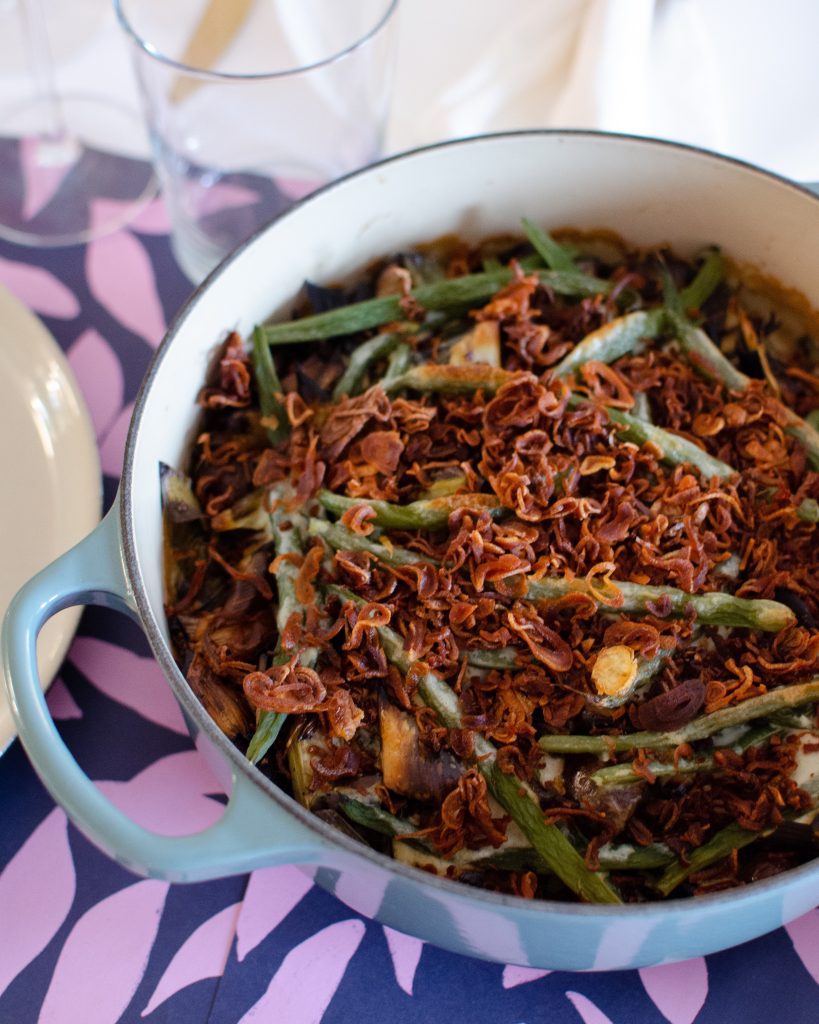New Year, Better Food Relationship
We are launching the new year, and our 25th Anniversary here at Casting for Recovery, with a better food relationship! Paige Wollenzien MS, RD, LD from the www.thekitchenrd.com is a Registered Dietitian with a master’s degree in nutrition and dietetics. She’s our guest blogger this week discussing relationships with food. Learn more, follow her on social media and sign up for her nutrition services.
–
New Year’s resolutions do not have to include a new diet. Why? To put it simply, they don’t work. For the grand majority of individuals, weight loss cannot be maintained 2-5 years post diet. Counterintuitively, the most consistent predictor of weight gain is actually weight loss dieting. If dieting actually worked, you wouldn’t need to keep including one in your New Year’s resolutions time and time again.
Does this sound familiar? You have been doing so good at eating healthy, sticking to your diet, cutting out the foods you ‘shouldn’t’ have, eating within your calorie limit, and getting to the gym. You ride this high for a while and are probably seeing some results. But then little by little life happens. There is a period in which you get busy or stressed. You don’t have time to meal plan this week. You are pushing yourself to get to the gym even though it has lost its luster. And you are starting to crave all of those foods that you have been so good at cutting out. You end up grabbing fast food on the drive home because you are too tired to prep anything balanced. And slowly you continue to let the diet rules slide. You keep telling yourself just one more ‘cheat’ day, diet starts again Monday. Time passes and you only feel shame and guilt that you didn’t have the willpower this time around. You have fallen off the wagon again. You continue to ‘treat’ yourself to foods and skip your workouts because you have already let yourself get this far. Until the feelings of disgust start to kick in, and you know it is time to start again. To get back on the wagon. And this time you will do better, try harder, and yet again strive for health and happiness.
And the cycle starts again. Dieting is not very successful for long term weight loss, but you know what it is successful at? Creating feelings of preoccupation with food choices, body image, exercise, reduced self-esteem, weight stigmatization, discrimination, inability to define personal health goals, food phobias, disordered eating, diminished flexibility, reduced feelings of connectedness to others, and most importantly a damaged food relationship. The amount of stress over choosing ‘the perfect diet’ can actually be more detrimental to our health than any dietary choice. If health is your goal, but weight loss dieting is not the best way to meet that goal, what should we focus on instead? If we cannot rely on the diet rules to tell us how to eat, the ‘I should’ and/or ‘I shouldn’t’, if restriction is the exact thing that is causing binge eating. What do we do?
Focus instead on working to heal your relationship with food and your body. This means less guilt, shame, or feelings of failure and more self-compassion, trusting your intuition, and making food choices confidently. Rather than committing to yet another diet, try adopting an intuitive eating approach instead. Intuitive eating is a flexible style of eating in which you build trust in your body to recognize internal sensations of hunger and satisfaction, telling you when/what to eat, and when to stop eating. It rejects the appearance obsessed ideals of society and challenges beliefs, thoughts, and rules about what you ‘should/shouldn’t’ eat, and what health looks like. Intuitive eating takes into consideration all factors of health including stress, anxiety, sleep, environment, genetics, social connectedness, diet, and physical activity, providing health benefits with or without changes in body size. There is no such thing as the best and only way to achieve health for everyone, because a perfect diet and/or ideal body type does not exist.
Within the framework of intuitive eating you work on mindfulness, and reading internal cues of hunger, fullness, and satisfaction to nourish your body, mind, and soul with what it needs. These intuitive eating principles also work towards food neutrality vs. morality. Foods are not ‘good’ or ‘bad’ based on what they are, or what they have in them, and you are not a better or worse person based on your food choices. You will also make peace with food by giving yourself unconditional permission to eat all foods, which reduces feelings of food obsession, strong cravings, and guilt and/or shame associated with food choices. It also rejects the ‘earn and burn’ mentality of exercise and food decisions, and focuses instead on moving your body in a way that brings you joy. Intuitive eating is all about the learned experience of our food decisions, there is no right or wrong, or diet rules to ‘cheat’ on. There is no wagon to fall off of.
Dieting is a distraction, and life is too short to live by arbitrary food rules. When we spend all of our time, energy, and efforts trying to achieve the ideal diet or body type, we grow disconnected from the values you would like to live by. Maybe your ideal weight is that in which you are able to enjoy food for its taste and appreciate the nourishment it provides. Move your body when it feels good to you and take time off when it doesn’t. Attend social gatherings centered around food and truly enjoy the time spent. Have meaningful conversations over a meal without the distraction of tracking calories, macros, or your eating window. Your ideal weight is one in which you are able to live life to the fullest. Building a positive relationship with food and our bodies is key for health and happiness. So, I am challenging you to do something different for your health in 2021. To do something better for your health in 2021.
About the author- My name is Paige Wollenzien MS, RD, LD and I am a Registered Dietitian with a master’s degree in nutrition and dietetics. I started The Kitchen Dietitian with the goal of helping individuals grow a positive relationship with food and move away from the damages restrictive diet patterns can cause. My practice focuses mindfulness and intuitive eating, disordered eating, general health and wellness, feeding your family, and healthy eats and cooking tips. Despite the amount of food and health information out there, I have found that most have more questions than answers. I aim to be a resource for quality, evidence-based information to help clear the confusion around food and nutrition. Services my business offers include individual nutrition coaching, intuitive eating education, nutrition classes, weekly recipes, and donation based virtual cooking classes. Please visit www.thekitchenrd.com to sign up for my email list, schedule a free discovery call, browse my recipes, or find out more information about my services. I hope you have a happy and healthy New Year!














